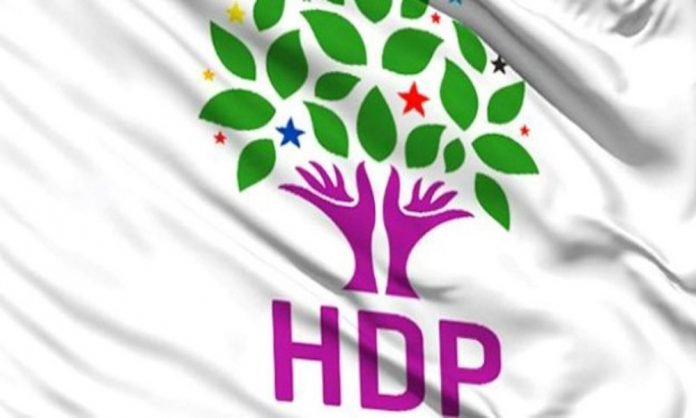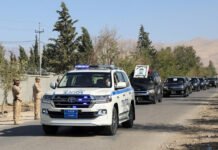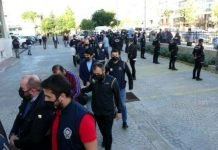Turkey’s pro-Kurdish Peoples’ Democratic Party’s (HDP) holds the Justice and Development Party (AKP) government “politically and legally responsible” for shelling that killed nine civilians in northern Iraq’s Kurdistan region on Wednesday, Turkish Minute reported.
Nine people including children were killed and 23 wounded in the Zakho district village of Parakh on Wednesday, when artillery shells hit a park in an attack that local officials blamed on neighboring Turkey. The majority of the casualties were domestic tourists seeking respite from the heat of the plains in the mountains of the Kurdish north.
The HDP in a statement on Thursday called for an urgent meeting of the General Assembly of the Turkish Parliament following the attack, saying it would go down in history as “the second Roboski massacre.”
The incident commonly known as the Roboski massacre refers to the killing of 34 male Kurdish civilians, most of them teenagers, on Dec. 28, 2011, when military jets bombed them after receiving intelligence on terrorists from the outlawed Kurdistan Workers’ Party (PKK) in the Uludere district of Şırnak province near the Turkish–Iraqi border.
“Bombing civilian settlements is a crime against humanity and a war crime. Turkey is a direct party to international conventions prohibiting it. … This massacre is also an attack on the sovereignty of another country. The perpetrators and decision-makers must be prosecuted,” the HDP said.
The Diyarbakır Bar Association also announced in a series of tweets that they would file a complaint regarding the shelling blamed on Turkey in order to “identify and punish those responsible” for the attack.
“As it did in Roboski, humanitarian law [again] becomes worthless when it comes to the Kurds,” the association stated.
In an unusually strong rebuke, Iraqi Prime Minister Mustafa al-Kadhemi on Wednesday warned Turkey that Baghdad reserves the “right to retaliate,” calling the artillery fire a “flagrant violation” of sovereignty — a line echoed by Iraq’s Kurdish administration.
Iraq said it was recalling its chargé d’affaires from Ankara and summoning Turkey’s ambassador, and demanded an official apology from Turkey along with “the withdrawal of its armed forces from all Iraqi territory.”
But Turkey’s foreign ministry denied responsibility for the bombardment, saying these “kinds of attacks” were committed by “terrorist organizations,” and inviting Baghdad to avoid making statements influenced by “terrorist propaganda.”
Ankara launched an offensive in northern Iraq in April called “Operation Claw-Lock,” which it said targets militants from the PKK, a militant group that has kept up a bloody war for Kurdish self-rule in southeastern Turkey since 1984 and is listed by Ankara and its Western allies as a “terrorist organization.”
For the past 25 years, the Turkish army has maintained dozens of outposts across Iraq’s Kurdish north as part of its campaign against the militants of the PKK. There have been sporadic calls for their removal.
Iraq and Turkey are key trade partners, but Ankara’s successive offensives against the PKK rear bases in the north have been a persistent thorn in relations.














